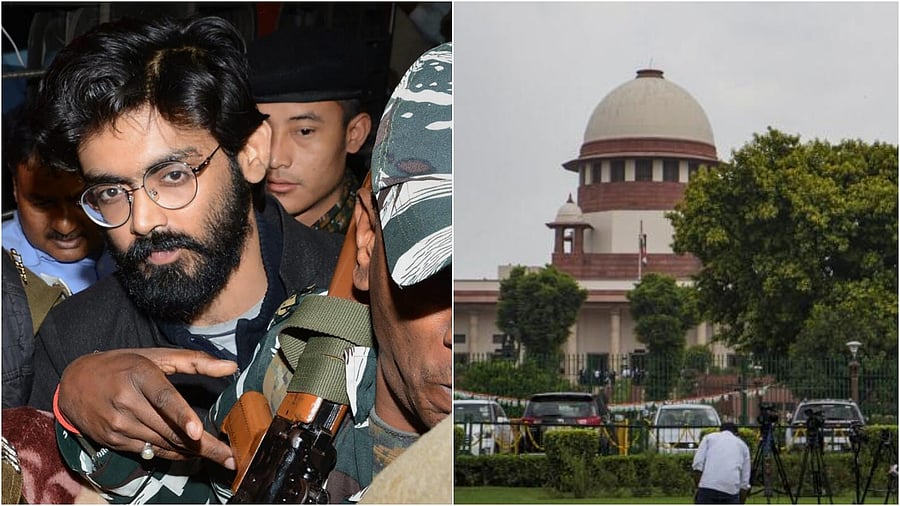
Sharjeel Imam, former student of JNU(L), Supreme Court in New Delhi
Credit: PTI File Photos
New Delhi: The Delhi police on Friday claimed before the Supreme Court that the protests against the CAA in the national capital were not a simple dharna but were aimed at regime change like Bangladesh and Nepal.
While opposing bail plea of activists Umar Khalid, Sharjeel Imam and others, arrested under the UAPA in the February 2020 riots case, the police also said that the trial in the riots larger conspiracy case can be completed within two years if the accused cooperate.
Additional Solicitor General S V Raju, appearing for the Delhi Police, submitted before a bench of Justices Aravind Kumar and N V Anjaria that the Delhi riots were the result of a conspiracy involving several accused, including Tahir Hussain, Shifa Ur Rahman, Meeran Haider, Ishrat Jahan and Khalid Saifi, who he alleged financed the violence.
Referring to statements from a witness, Raju submitted that conspirators planned violence, organised chakka jams to disrupt and "choke Assam out of India," and further mobilised rioters who, armed with sticks, engaged in heavy stone-pelting.
"This is a clear case where Unlawful Activities (Prevention) Act, 1967 offences are attracted, conspiracy to commit terrorist act, murder, etc is made out. It was not a simple dharna for the Citizenship (Amendment) Act, 2019, it was for regime change," he claimed.
He maintained, all those who went for dharna carried sticks, acid bottles.
"They wanted regime change like in Bangladesh and Nepal. They have scant regard for the Constitution," Raju told the bench.
Raju said large-scale rioting occurred after the street CCTVs were destroyed.
"A police constable was killed and other police personnel were injured in the attack following a large-scale mobilisation. In the ensuing riots, an Intelligence Bureau officer was killed," he said.
The bench will continue to hear the matter on November 24.
The matter arose out of the challenge to order Delhi High Court's September 2 order, which rejected the bail by the activists in the case
